 This duo of Sofie Herner and Sewer Election's Dan Johannsson is probably my favorite project to emerge from Sweden's flourishing underground in recent years. När, their third album, was originally released on vinyl back in 2017, but I believe it only became widely available in digital form this spring. While Neutral's aesthetic has certainly evolved over the years, Herner's idiosyncratic and oft-creepy lo-fi pop experiments and Johannsson's noisy textures always combine to form something stranger and more compelling than the sum of their parts. I suppose Neutral's closest kindred spirits are probably The Shadow Ring, but the best moments on När sound more like an surreal and intimate answering machine message or a ransom note delivered in the form of a blurry and distorted VHS tape.
This duo of Sofie Herner and Sewer Election's Dan Johannsson is probably my favorite project to emerge from Sweden's flourishing underground in recent years. När, their third album, was originally released on vinyl back in 2017, but I believe it only became widely available in digital form this spring. While Neutral's aesthetic has certainly evolved over the years, Herner's idiosyncratic and oft-creepy lo-fi pop experiments and Johannsson's noisy textures always combine to form something stranger and more compelling than the sum of their parts. I suppose Neutral's closest kindred spirits are probably The Shadow Ring, but the best moments on När sound more like an surreal and intimate answering machine message or a ransom note delivered in the form of a blurry and distorted VHS tape.
Two new shows just for you. We have squeezed out two extended release episodes for this weekend to get you through this week. They contain mostly new songs but there's also new issues from the vaults. The first show features music from Rider/Horse, Mint Field, Robert Aiki Aubrey Lowe, Anastasia Coope, ISAN, Stone Music, La Securite, Bark Psychosis, Jon Rose, Master Wilburn Burchette, Umberto, Wand, Tim Koh, Sun An, and Memory Drawings. The second episode has music by Laibach, Melt-Banana, Chuck Johnson, X, K. Yoshimatsu, Dorothy Carter, Pavel Milyakov, Violence Gratuite, Mark Templeton, Dummy, Endon, body / negative, Midwife, Alberto Boccardi, Divine. Cow in Maui from Veronika in Vienna. Get involved: subscribe, review, rate, share with your friends, send images! |



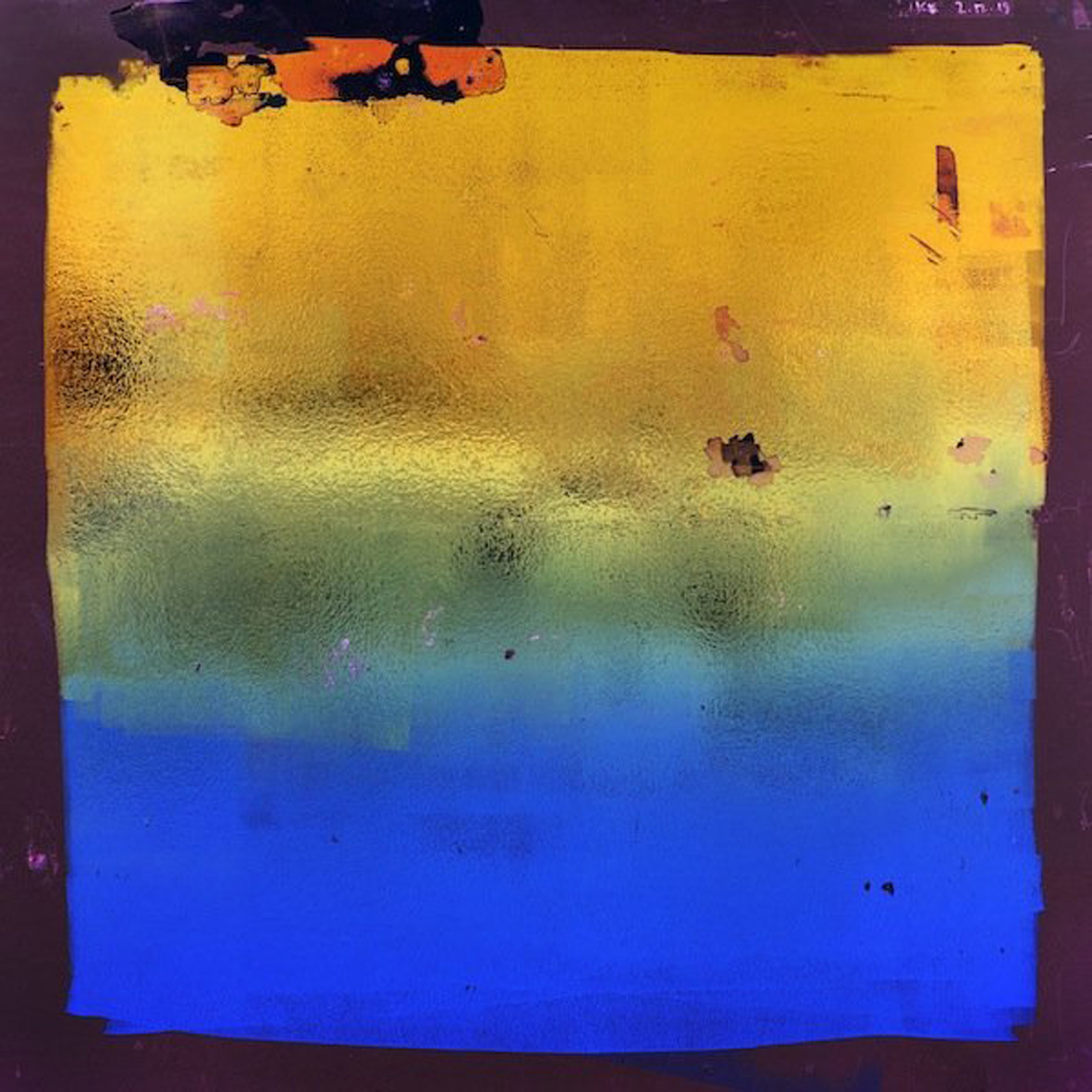 Recently reissued in expanded form, A Turn of Breath was Ian William Craig's 2014 formal debut, though it was predated by a handful of digital-only and cassette releases. In fact, I am quite fond of his first two Recital Program albums, even if they betray a strong Tim Hecker influence. With A Turn of Breath, however, Craig made a major creative leap forward, casting aside any lingering derivative touches to establish himself as one of the most talented and distinctive sound artists in recent memory. Using just his voice as his primary instrument, Craig employs an arsenal of tape players to transform his simple, naked melodies into swooning and warbling dream-like bliss. He later expanded considerably on that aesthetic with the more song-based and shoegaze-inspired Centres, but that vision was already quite lovely and fully formed here–A Turn of Breath just happens to be a more fragmented, flickering, and hallucinatory incarnation of it.
Recently reissued in expanded form, A Turn of Breath was Ian William Craig's 2014 formal debut, though it was predated by a handful of digital-only and cassette releases. In fact, I am quite fond of his first two Recital Program albums, even if they betray a strong Tim Hecker influence. With A Turn of Breath, however, Craig made a major creative leap forward, casting aside any lingering derivative touches to establish himself as one of the most talented and distinctive sound artists in recent memory. Using just his voice as his primary instrument, Craig employs an arsenal of tape players to transform his simple, naked melodies into swooning and warbling dream-like bliss. He later expanded considerably on that aesthetic with the more song-based and shoegaze-inspired Centres, but that vision was already quite lovely and fully formed here–A Turn of Breath just happens to be a more fragmented, flickering, and hallucinatory incarnation of it.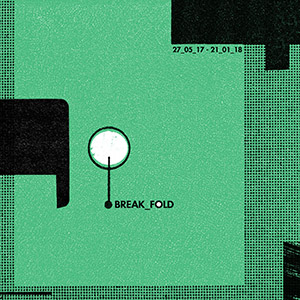 Following up last year’s equally difficult titled tape release, the mysterious break_fold project’s newest work, 27_05_17-21_01_18 continues the stripped-down techno style that the artist cultivated on that previous release, but in a way that demonstrates a sense of growth and complexity in comparison. With a unified sound across each of the seven songs—but different arrangements for each—the final product is a varied, satisfying one that draws from a wide variety of rhythm oriented electronic music.
Following up last year’s equally difficult titled tape release, the mysterious break_fold project’s newest work, 27_05_17-21_01_18 continues the stripped-down techno style that the artist cultivated on that previous release, but in a way that demonstrates a sense of growth and complexity in comparison. With a unified sound across each of the seven songs—but different arrangements for each—the final product is a varied, satisfying one that draws from a wide variety of rhythm oriented electronic music.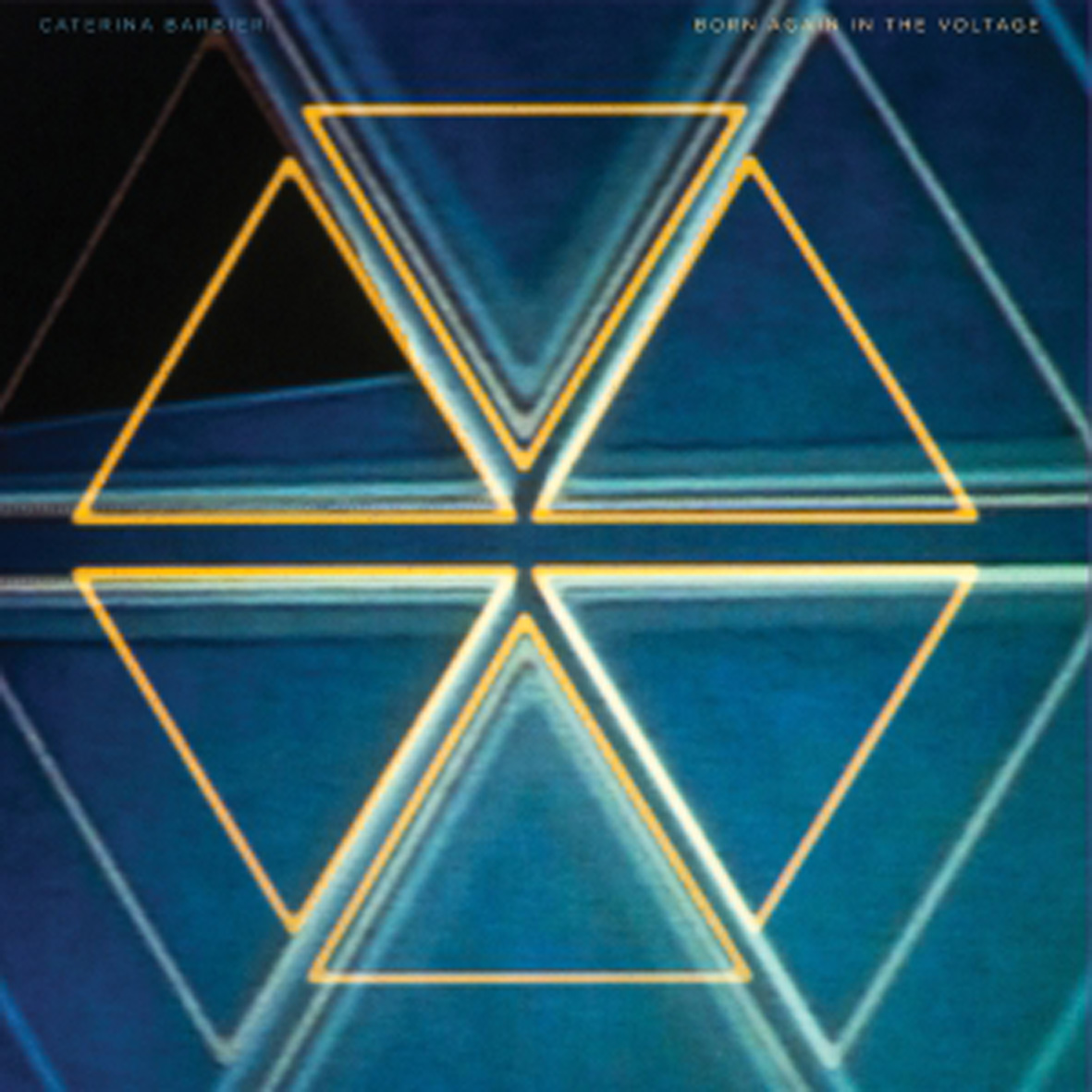 Last year's Patterns of Consciousness was a massive, ambitious, and occasionally dazzling psychotropic opus that sought to reshape consciousness through pattern manipulation, instantly establishing Caterina Barbieri as one of the most compelling contemporary synthesizer composers. Naturally, it will be a damn tough act to follow, but Born Again in the Voltage is not its highly anticipated successor, as its four pieces were recorded back in 2014 and 2015. On this more drone-based affair composed for the Buchla 200, Barbieri is joined by cellist Antonello Mostacci for a more modest and understated batch of songs. As such, Voltage is not quite as striking or distinctive as Barbieri's debut, but it is still quite good and "How to Decode an Illusion" is an absolutely gorgeous work.
Last year's Patterns of Consciousness was a massive, ambitious, and occasionally dazzling psychotropic opus that sought to reshape consciousness through pattern manipulation, instantly establishing Caterina Barbieri as one of the most compelling contemporary synthesizer composers. Naturally, it will be a damn tough act to follow, but Born Again in the Voltage is not its highly anticipated successor, as its four pieces were recorded back in 2014 and 2015. On this more drone-based affair composed for the Buchla 200, Barbieri is joined by cellist Antonello Mostacci for a more modest and understated batch of songs. As such, Voltage is not quite as striking or distinctive as Barbieri's debut, but it is still quite good and "How to Decode an Illusion" is an absolutely gorgeous work. Newly reissued, 2011's The Letter was Liberez's formal debut, but it is new to me and confirms that John Hannon's gnarled post-industrial vision was great right from the beginning. In some ways, I suppose The Letter is a bit more primitive than the shifting ensemble's more recent releases, but that is more of an asset than a shortcoming with this project–it simply means that Hannon and his collaborators sound even more like a bunch of early '80s experimentalists bashing on oil drums and chopping up tape loops in a freezing squat or abandoned warehouse. I suppose Hannon's more recent work is a bit more distinctive in some ways, often resembling some kind of Eastern European folk music played with rusted junkyard instruments and blown-out amps, but The Letter has enough visceral power, freewheeling experimentation, and unconventional percussion to stand out in its own right. It might actually be my favorite of Liberez's three albums, though Sane Men Surround is damn hard to top.
Newly reissued, 2011's The Letter was Liberez's formal debut, but it is new to me and confirms that John Hannon's gnarled post-industrial vision was great right from the beginning. In some ways, I suppose The Letter is a bit more primitive than the shifting ensemble's more recent releases, but that is more of an asset than a shortcoming with this project–it simply means that Hannon and his collaborators sound even more like a bunch of early '80s experimentalists bashing on oil drums and chopping up tape loops in a freezing squat or abandoned warehouse. I suppose Hannon's more recent work is a bit more distinctive in some ways, often resembling some kind of Eastern European folk music played with rusted junkyard instruments and blown-out amps, but The Letter has enough visceral power, freewheeling experimentation, and unconventional percussion to stand out in its own right. It might actually be my favorite of Liberez's three albums, though Sane Men Surround is damn hard to top.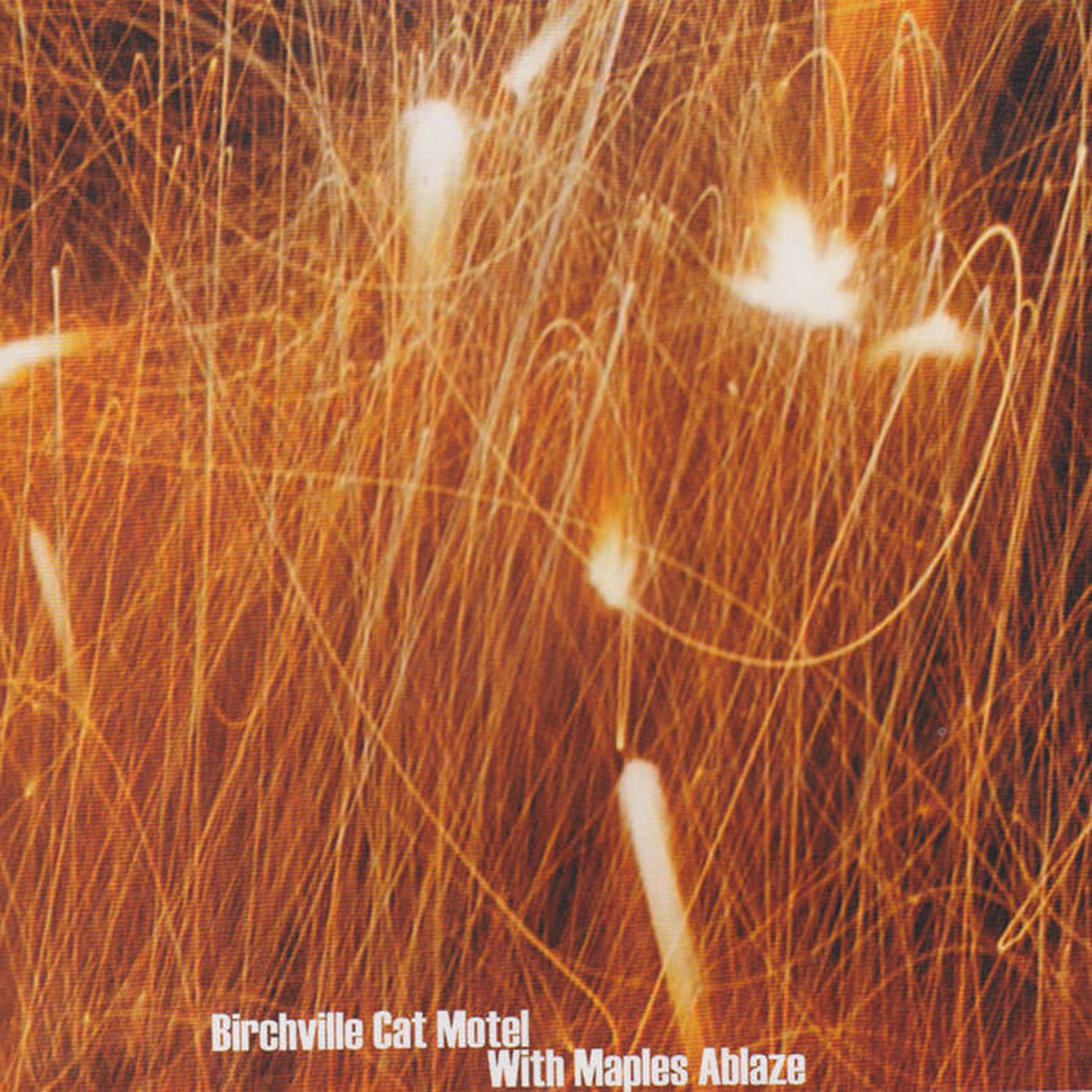 For years, I have rightly hailed Campbell Kneale as one of the true dark wizards of gnarled guitar noise, but I did not fully appreciate the depth and breadth of his vision until only recently: pre-Bandcamp, it was quite a difficult, expensive, and overwhelming endeavor to keep up with his sprawling body of work. As a result, several landmark albums fell through the cracks and remain woefully underappreciated to this day. One such example is this 2004 release on the now-defunct Scarcelight label, a hallucinatory suite of musique concrète, deep drones, and innovative collage that drew in a murderers' row of talented collaborators like John Wiese, Bruce Russell, Jonathan Coleclough, Peter Wright, and Neil Campbell. As with many Kneale releases, With Maples Ablaze occasionally dips into some nerve-jangling and dissonant territory, but the high points are legitimately amazing to behold.
For years, I have rightly hailed Campbell Kneale as one of the true dark wizards of gnarled guitar noise, but I did not fully appreciate the depth and breadth of his vision until only recently: pre-Bandcamp, it was quite a difficult, expensive, and overwhelming endeavor to keep up with his sprawling body of work. As a result, several landmark albums fell through the cracks and remain woefully underappreciated to this day. One such example is this 2004 release on the now-defunct Scarcelight label, a hallucinatory suite of musique concrète, deep drones, and innovative collage that drew in a murderers' row of talented collaborators like John Wiese, Bruce Russell, Jonathan Coleclough, Peter Wright, and Neil Campbell. As with many Kneale releases, With Maples Ablaze occasionally dips into some nerve-jangling and dissonant territory, but the high points are legitimately amazing to behold.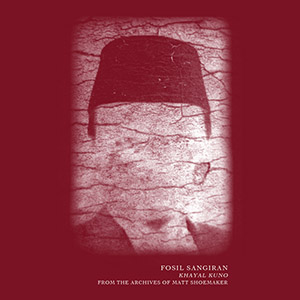 Fosil Sangiran is a previously unused pseudonym for the late Matt Shoemaker, who passed away in August 2017. Although he had a lengthy body of work under his own name, these works were to be issued under a different name as to reflect the differing intent he took during these recordings. Both of these cassettes consist of material that was recorded between 2012 and 2013 during Shoemaker's time living in Java, Indonesia, which is evident in the music itself. There are parallels to be heard to the work under his own name, but both Pasar Fosil and Khayal Kuno have distinctly different qualities, both in comparison to his other work and even between one another, but both represent differing facets to an artist that left us far too soon.
Fosil Sangiran is a previously unused pseudonym for the late Matt Shoemaker, who passed away in August 2017. Although he had a lengthy body of work under his own name, these works were to be issued under a different name as to reflect the differing intent he took during these recordings. Both of these cassettes consist of material that was recorded between 2012 and 2013 during Shoemaker's time living in Java, Indonesia, which is evident in the music itself. There are parallels to be heard to the work under his own name, but both Pasar Fosil and Khayal Kuno have distinctly different qualities, both in comparison to his other work and even between one another, but both represent differing facets to an artist that left us far too soon.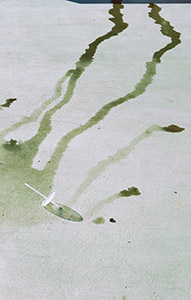 Australia’s Todd Anderson-Kunert’s discography as a sound artist may have been relatively brief thus far (his earliest solo electronic work as Autonomous dates from 2007), but the quality has been exceptionally strong given his relative newness on the scene, and A Good Time to Go is no different. His blend of experimental electronics is an especially dynamic one that builds brilliantly from piece to piece on this tape, covering a wide spectrum of mood and diversity, while still functioning as a cohesive album.
Australia’s Todd Anderson-Kunert’s discography as a sound artist may have been relatively brief thus far (his earliest solo electronic work as Autonomous dates from 2007), but the quality has been exceptionally strong given his relative newness on the scene, and A Good Time to Go is no different. His blend of experimental electronics is an especially dynamic one that builds brilliantly from piece to piece on this tape, covering a wide spectrum of mood and diversity, while still functioning as a cohesive album.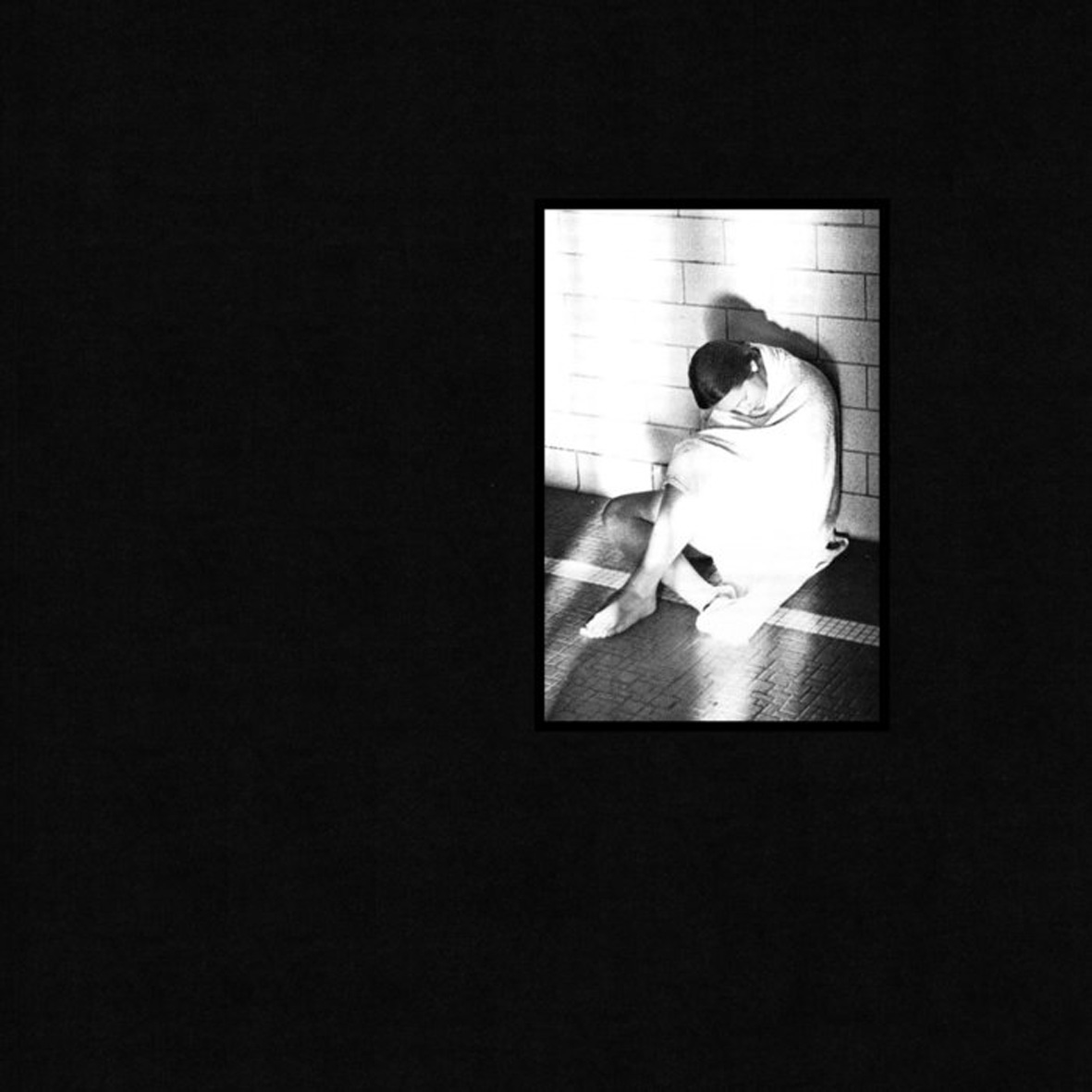 Recorded during the turbulent period following the closure of beloved Denver DIY space Rhinoceropolis, Prayer Hands takes the hazy, melancholy dream-pop beauty of Like Author, Like Daughter and distills it into a gut-punch of simmering and seething emotion. While the swooning, elegantly blurred pop of "Angel" is probably the release's biggest hook, Madeline Johnston and collaborator Tucker Theodore gamely expand the Midwife aesthetic in some more visceral and experimental directions as well. The result is a near-perfect release that features three gorgeously haunting gems of hissing and hypnagogic shoegaze heaven in a row.
Recorded during the turbulent period following the closure of beloved Denver DIY space Rhinoceropolis, Prayer Hands takes the hazy, melancholy dream-pop beauty of Like Author, Like Daughter and distills it into a gut-punch of simmering and seething emotion. While the swooning, elegantly blurred pop of "Angel" is probably the release's biggest hook, Madeline Johnston and collaborator Tucker Theodore gamely expand the Midwife aesthetic in some more visceral and experimental directions as well. The result is a near-perfect release that features three gorgeously haunting gems of hissing and hypnagogic shoegaze heaven in a row.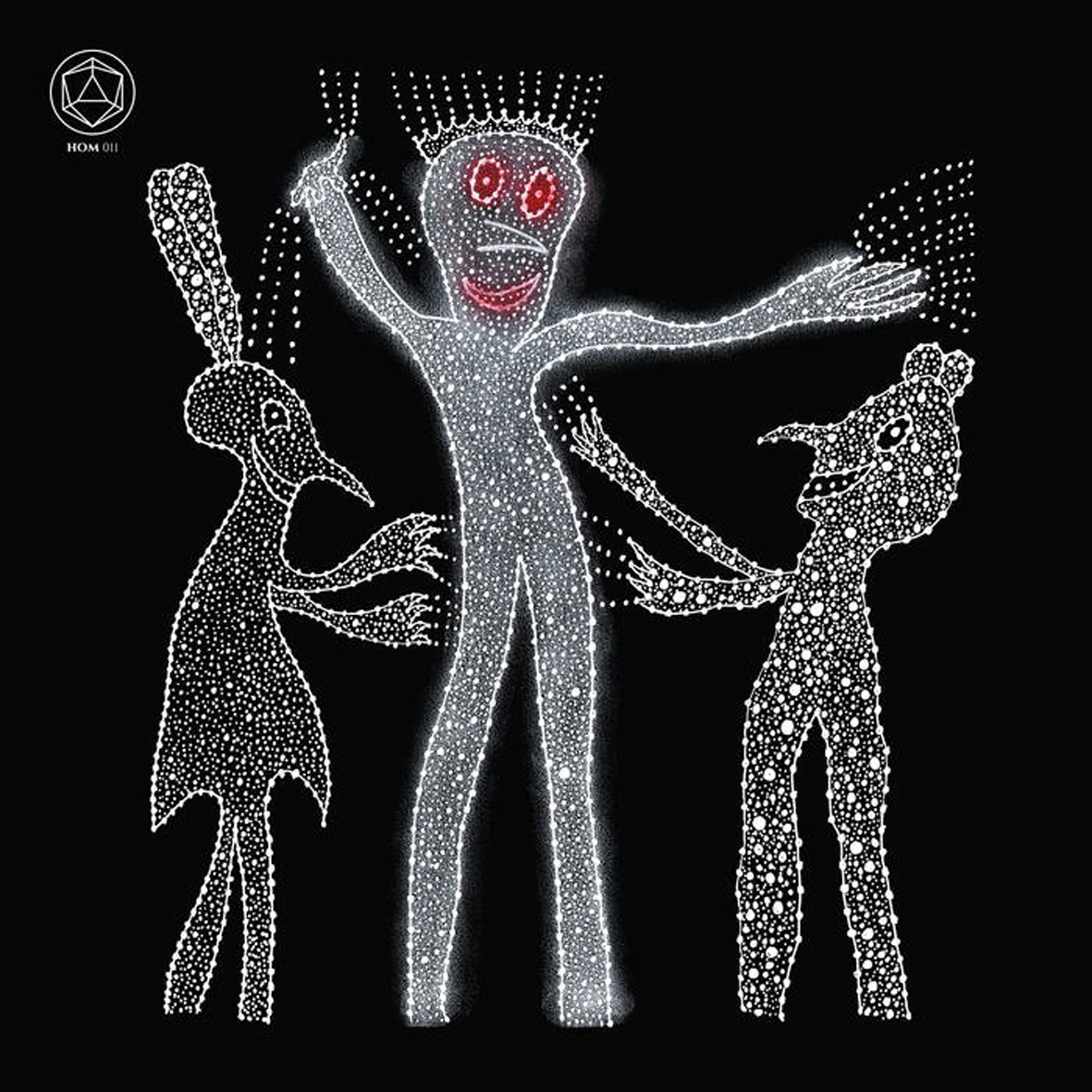 The inimitable David Tibet returns to House of Mythology for a second inspired collaboration, this time teaming up with shape-shifting Italian ensemble Zu. Unlike his more spacey and indulgent union with Youth, however, Mirror Emperor feels very much like a Current 93 album. That similarity is not due to any lack of vision on Zu's part though, as this album is very much driven by a David Tibet in peak wild-eyed, apocalyptic prophet form: Mirror Emperor is essentially a fiery, hallucinatory, and poetic tour de force that drags Zu down a deep rabbit hole in the UnWorld on the other side of the mirror. As such, Mirror Emperor is a dazzling and compelling album primarily because Tibet had a vivid vision that he breathlessly shares with an incandescent passion. The music is often quite good as well, of course, but Mirror Emperor is more of a lysergic epic poem than a collection of discrete songs. That is just fine by me, as few things are more captivating than pure, undiluted Tibet with a microphone and some strong feelings to share.
The inimitable David Tibet returns to House of Mythology for a second inspired collaboration, this time teaming up with shape-shifting Italian ensemble Zu. Unlike his more spacey and indulgent union with Youth, however, Mirror Emperor feels very much like a Current 93 album. That similarity is not due to any lack of vision on Zu's part though, as this album is very much driven by a David Tibet in peak wild-eyed, apocalyptic prophet form: Mirror Emperor is essentially a fiery, hallucinatory, and poetic tour de force that drags Zu down a deep rabbit hole in the UnWorld on the other side of the mirror. As such, Mirror Emperor is a dazzling and compelling album primarily because Tibet had a vivid vision that he breathlessly shares with an incandescent passion. The music is often quite good as well, of course, but Mirror Emperor is more of a lysergic epic poem than a collection of discrete songs. That is just fine by me, as few things are more captivating than pure, undiluted Tibet with a microphone and some strong feelings to share.
